
The 1976 United States Senate elections was an election for the United States Senate that coincided with Democratic Jimmy Carter's presidential election and the United States Bicentennial celebration. Although almost half of the seats decided in this election changed parties, Carter's narrow victory did not provide coattails for the Democrats, and the balance of the chamber remained the same.

The 1970 United States Senate elections was an election for the United States Senate, taking place in the middle of Richard Nixon's first term as President. The Democrats lost a net of three seats, while the Republicans and the Conservative Party of New York picked up one net seat each, and former Democrat Harry F. Byrd Jr. was re-elected as an independent.

The 1964 United States Senate elections coincided with the election of President Lyndon B. Johnson by an overwhelming majority, to a full term. His Democratic Party picked up a net two seats from the Republicans. As of 2019, this is the last time either party has had a two-thirds majority in the Senate, which would have hypothetically allowed the Senate Democrats to override a veto, convict and expel certain officials, or invoke cloture without any votes from Republicans. The Senate election coincided with Democratic gains in the House in the same year.
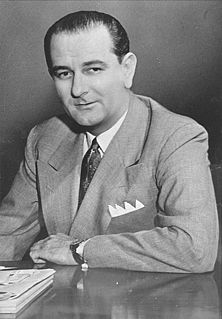
The 1958 United States Senate elections were elections for the United States Senate which occurred in the middle of President Dwight D. Eisenhower's second term. As is common in midterm elections, the party in the White House lost seats, but losses this year were more than usual, perhaps due to the high unemployment of the Recession of 1958. The Eisenhower Administration's position on right-to-work issues galvanized labor unions which supported Democrats. The launch of Sputnik may also have been a factor.

The 1950 United States Senate elections occurred in the middle of Harry S. Truman's second term as President. As with most 20th-century second-term mid-terms, the party out of the Presidency made significant gains. The Republican opposition made a net gain of five seats, taking advantage of the Democratic administration's declining popularity during the Cold War and the aftermath of the Recession of 1949. The Democrats held a narrow 49 to 47 seat majority after the election. This became the first time since 1932 that the Senate Majority Leader lost his seat and the only instance where the majority leader lost his seat while his party retained the majority.

The 1998 United States Senate election in Arkansas was held November 3, 1998. Incumbent Dale Bumpers did not run for re-election, as he was retiring. U.S. Representative Blanche Lincoln won the open seat against State Senator Fay Boozman. 12 years later she would be defeated by Fay's younger brother John Boozman in 2010.
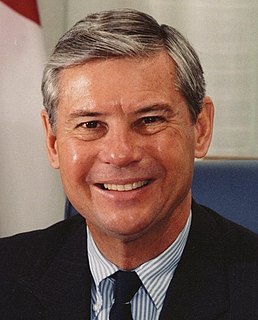
The 1992 United States Senate election in Florida took place on November 3, 1992 alongside other elections to the United States Senate in other states as well as elections to the United States House of Representatives and various state and local elections. Incumbent Democratic U.S. Senator Bob Graham won re-election to a second term.

The 1976 United States Senate election in Pennsylvania was held on November 2, 1976. Incumbent Republican U.S. Senator and Minority Leader Hugh Scott decided to retire. Republican John Heinz won the open seat.

The 1964 United States elections was held on November 3, and elected the members of the 89th United States Congress. The Democratic party retained the presidency and added to their majorities in both chambers of Congress. This was the first presidential election after the ratification of the 23rd Amendment, which granted electoral votes to Washington, D.C.
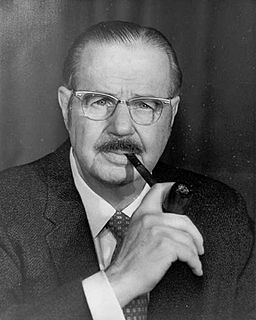
The 1958 United States Senate election in Pennsylvania was held on November 4, 1958. Incumbent Republican U.S. Senator Edward Martin did not seek re-election. The Republican nominee, Hugh Scott, defeated Democratic nominee George M. Leader for the vacant seat.

The 1970 United States Senate election in Pennsylvania was held on November 3, 1970. Incumbent Republican U.S. Senator Hugh Scott won re-election, defeating Democratic nominee William Sesler.
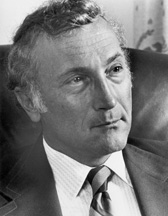
The 1968 United States Senate election in Pennsylvania was held on November 5, 1968. Incumbent Democratic U.S. Senator Joseph S. Clark, Jr. sought re-election to another term, but was defeated by Republican nominee Richard Schweiker.

The 1962 United States Senate election in Pennsylvania was held on November 6, 1962. Incumbent Democratic U.S. Senator Joseph S. Clark, Jr. successfully sought re-election to another term, defeating Republican nominee James E. Van Zandt. A Democratic U.S. Senator would not be re-elected in Pennsylvania again until 2012. As of 2019, this is the last time the Democrats have won the Class 3 Senate Seat from Pennsylvania.
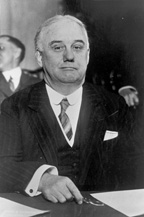
The 1926 United States Senate election in Pennsylvania was held on November 2, 1926. Incumbent Republican George W. Pepper, who was appointed following the death of Boies Penrose, was defeated for re-nomination by William Scott Vare. Vare won the election, defeating Democratic opponent William Bauchop Wilson. He was not permitted to assume office, however, until an investigation was conducted into possible election fraud and corruption. Vare was ultimately unseated in December 1929 by the Senate, following charges of corruption.

The 1930 United States Senate special election in Pennsylvania was held on November 4, 1930. Joseph R. Grundy, incumbent Republican appointed to fill the vacancy created by the unseating of William Scott Vare, was defeated for re-nomination. The Republican nominee, James J. Davis, defeated Democratic nominee Sedgwick Kistler to win the election.

The 1982 United States Senate election in Pennsylvania was held on November 2, 1982. Incumbent Republican U.S. Senator H. John Heinz III successfully sought re-election to another term, defeating Democratic nominee Cyril Wecht.

Elections to the United States Senate will be held on November 8, 2022 with 34 of the 100 seats in the Senate being contested in regular elections, the winners of which will serve six-year terms in the United States Congress from January 3, 2023 to January 3, 2029. Senators are divided into three groups, or Classes, whose terms are staggered so that a different class is elected every two years. Class 3 Senators were last elected in 2016, and will be up for election again in 2022.
















